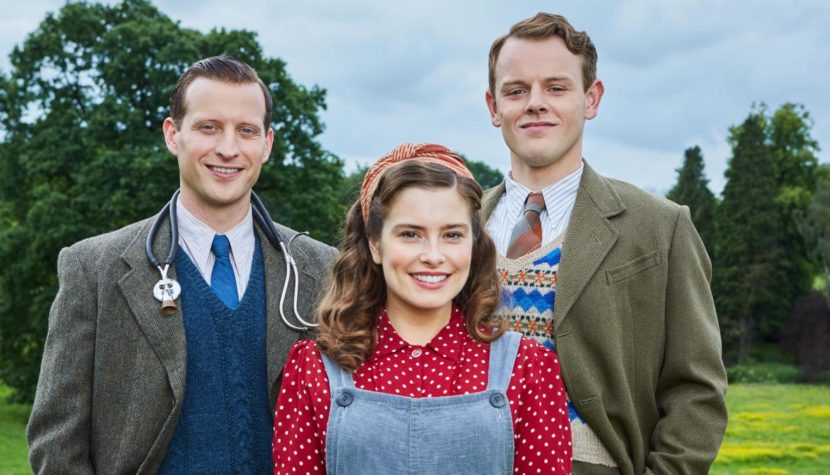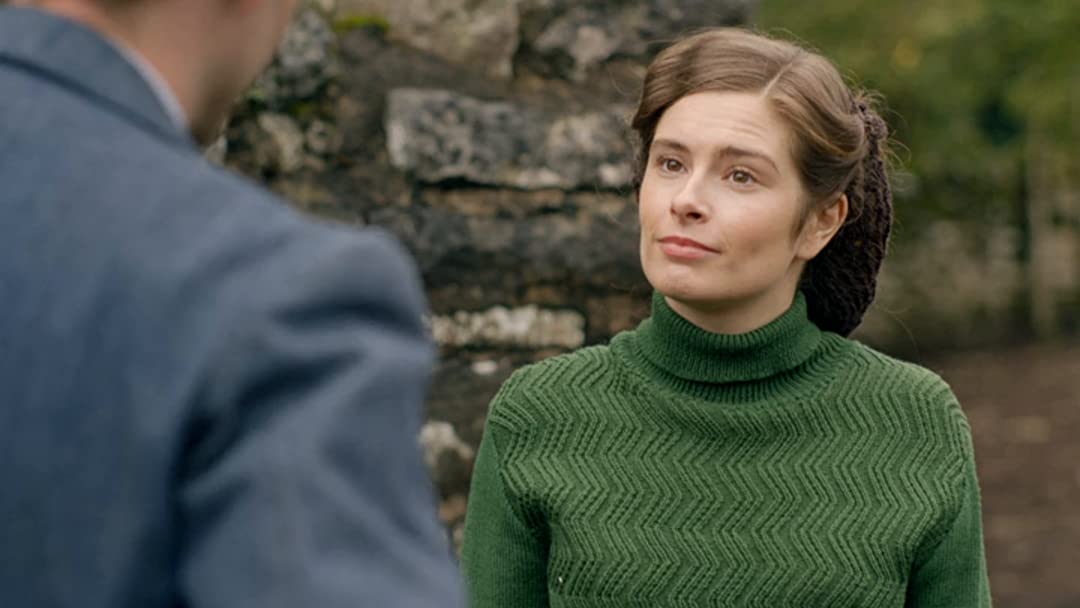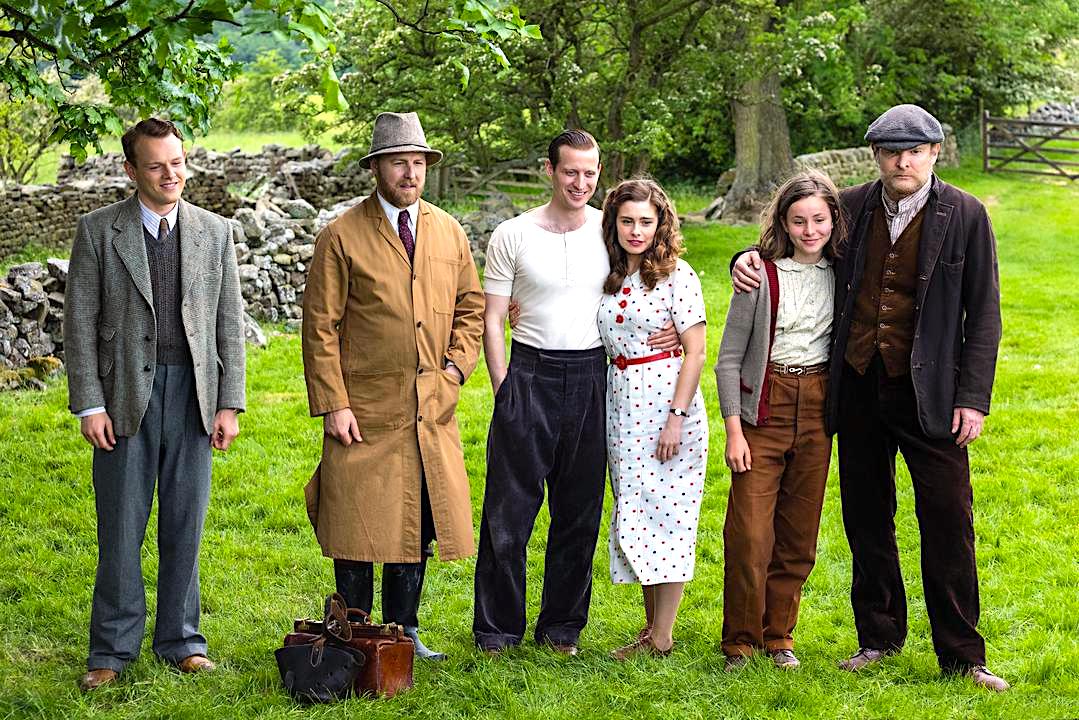Rachel Shenton on the UK’s hit series “All Creatures Great and Small”: “It’s been a joy to play”

We spoke to Rachel Shenton, an Oscar-winning actress for her short film The Silent Child (2017), about her main role in a British hit television series All Creatures Great and Small. Shenton talked about her character and discussed the narrative politics of the series’ third season.
Who is your character, Helen Alderson, and how did she evolve during the first two seasons of All Creatures Great and Small?
During the whole series, I think we kind of steadily learn about Helen’s personality. As an actress, I could play around with that and affect the viewers’ perspective. We find Helen in such different places when we meet her in season one and then leave her in the second season’s finale! She’s engaged to be married to Hugh Hulton (Matthew Lewis) and is set to have a new life. Hugh owns a lot of land: he’s very affluent, and that would mean a different life for Helen as she comes from a really poor household. You can sense a financial factor which would mean the end of her family’s struggle.
She makes that decision to not get married and to go down a different route; one even more difficult. And that’s a real testament to her because she does what’s right and not what’s easy. Through that choice, the audience can feel her actual strength. And I assume that this moment sets us up for the next phase of Helen, which is her stepping into herself a little bit more. In Season two, you see her growing a bit more and sort of being truthful to herself. After all, Hugh and Helen got together when they were so young, but they never had a chance to have any kind of romantic exploration. They were just friends that ended up sort of being together, and as it was then, their natural trajectory would be that they stay together and got married. The whole marriage was, after all, forced by the two families.
It was only when James came into her life that he sort of illuminated another path that she didn’t know was available. And as he did that, she started to question things. And so you see her exploring herself and stepping away from her obligations as a kind of surrogate mother to her family and the caretaker of Heston Grange. And that’s really wonderful to see. And then, as season three evolves, we see her becoming James’s wife and stepping into that other role. It has actually been a lovely evolutionary journey for her as a woman. And it’s been a joy to play.
Was exploring Helen’s subconsciousness only connected to reading the primary, literary source [James Herriot’s novels]? Or the whole script and working with directors was also crucial?
It was an amalgamation of a lot of factors. First of all, books have always been my reference point when researching Helen. I believe that they are always a really good anchor to go back to if I am stuck at some point in my preparation. Of course, the books are told very much from James’s perspective, and Helen isn’t in them as much in her own right. It’s more about his feelings towards her and how he was falling in love with her and getting attached to Helen. Of course, because they’re his books: that is why I had to imagine some moments from her perspective.
Furthermore, I have a really good relationship that I forged with Rosie Page. I am grateful for that acquaintance because she is James Harriet and Helen’s daughter in real life, and that has just been invaluable! This sort of wisdom and information that she’s offered me about Helen as a woman, Helen as a mother, Helen as a wife. That’s a real peek behind the curtain that felt like I wouldn’t have had in any other circumstances. So I’m very fortunate about that.
And then there’s working with our brilliant directors. Brian Percival, who is our lead director, had a lot of steer on Helen and where we pitch her. She lost a parent very young, and she grew up quite quickly. So she was always a step ahead of James, and that was what we always danced around. That was the nice bit, she was an emotional caretaker of his feelings from the get-go. And in this series that hasn’t aired everywhere yet, series three, you really see more of that.

What kind of activities (or threats) does the third season offer Helen? Can you tell us some details about her personal subplots?
We find Helen in a much happier place at the start of the next series. She’s planning a wedding, it’s no secret! And there’s obviously that tremendous tsunami of excitement and love she finds herself in. And I think that’s different from what we found in the last series. We know that Helen got very close to a wedding before, but these two events are literally worlds apart. This is so different, and now she’s in a space where she knows she’s supposed to be.
That being said, she doesn’t quite know how her life will look after that. She would be physically moving into Skeldale house, and that’s a huge change for her. She’ll be having to step away from her family obligations and her life at Heston Grange, which she takes very seriously. And it’s about her finding that new rhythm and striking a balance.
And again, I believe that’s also really relevant for modern women. I think that’s something that many of us feel all the time: you constantly have to strike a balance between work life, family and all those other things. I feel that that’s her journey in the series: she has to work out her place in the new Skeldale household.
What about her feelings towards James? In which place are they exactly in terms of the romantic relationship?
She’s in a very positive place, and it’s that heady cocktail of endorphins, excitement and love and all those great things because it’s so compelling. But at the same time, I suppose some of her emotions are really grounded. She’s not caught up in the giddiness of a wedding, although she’s very excited. I think she’s more excited to become his wife and the prospect of having a life with him, and the wedding is only a little formality.
She asks herself all these questions like “What will that bring?” or “What that will mean for me?”, and “What will my new place be?” She still very much wants to work and be involved in Heston Grange, but she also knows she needs to be a wife and find a place at Skeldale as well. And that’s what’s so wonderful about Ben Vanstone’s writing, it’s always so truthful and complex, as is life.

Is the idyllic tone of the latest episodes changing? World War II is coming closer and closer…
We’re still in the same community, and we have all the elements that make All Creatures Great and Small wonderful are very much still there, but we’re just putting them in slightly more realistic scenarios. Things sort of get serious, and I guess you see these characters saying, “Right, okay, we need to reinforce what we already have and prepare ourselves for the tough times”. I certainly think at times the series takes on a more serious stance because it has to! However, I don’t believe that it loses all the things that make it kind of magical either.
Does the scenario of the third season differ only marginally from the books? Or are there going to be any significant changes in terms of the storytelling?
It is safe to say there are no major changes to storytelling. I think it’s more of the same as the episodes picture greater understandings between the characters like in the books. It’s a deepening of the community and their sense of values and togetherness with something very real, palpable and scary looming.
Obviously, we’re on the brink of the Second World War, and that plays a huge part in everybody’s life. I guess we will get to see a little bit more of these characters under those circumstances, which you probably haven’t seen before. But I don’t think it gets away from what makes All Creatures Great and Small lovely, which is union and togetherness.

